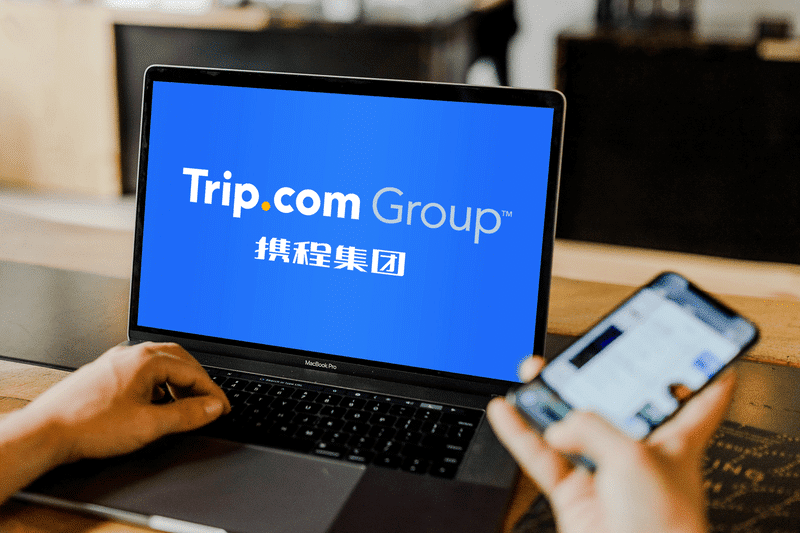Trip.com Group, a leading global travel services provider, has announced it will implement a global hybrid work model where employees will be given the option to work remotely on certain days each week from March 1st. With the launch of this new policy, Trip.com Group will become the first internet company in mainland China to implement a comprehensive proactive hybrid work model.
Trip.com Group’s new hybrid work model will be rolled out to employees across the travel group. Beginning with offices in mainland China, from March 1st employees will have the option to apply to work remotely during fixed times subject to management discretion. This policy will be implemented in Trip.com Group’s global offices adjusted according to local circumstances and COVID-19 protection measures.
Prior to the official implementation of the hybrid work policy, Trip.com Group conducted two large-scale, localised hybrid work trials in 2010 and 2021. Each of the trials focused on different groups of staff and working models. The 2010 trial, which saw volunteers work from home for periods, showed an increase in participant work performance and a decrease in labour turnover rates.
The most recent hybrid work trial began in August 2021 with over 1,600 participants. The results show that after nearly six months of the trial, employees’ willingness to participate rose to nearly 60%, and the turnover rate dropped by about one-third with no significant impact on performance. Participant survey data from the 2021 trial shows that 93% of employees felt they used their time more efficiently and over 75% reported feeling an improvement in their wellness.
“The promotion of hybrid working is a multi-win for companies, employees and society. Not only does it improve employee satisfaction without compromising efficiency, it also helps reduce traffic congestion and environmental protection; alleviates high housing prices and regional disparities; and contributes to families, female career development and higher fertility rates,” said James Liang, Chairman of the Board at Trip.com Group. “We hope that hybrid work models will be promoted more across mainstream Chinese companies in the future, which will have a positive and far-reaching impact on society and economy.”
With a significant drop in labour turnover and nearly 80% of employees saying it is conducive to improved wellness and work-life balance, the announced policy closely fits with the Group’s Employee Value Proposition to “live for more than work” and “to truly lead a full life in and out of the office”.
A company survey that questioned participants before and after the 2021 trial demonstrated the change in employee attitudes. The data shows that as the trial progressed, employees and supervisors became more optimistic about hybrid work. The number of those who do not support the working model dropped from 1% to 0.1%, and the number of those who are neutral decreased by 5.3%, while the percentage of those who strongly support hybrid working increased by 6.3% to nearly 60%.
Increased job satisfaction and happiness were the two main reasons employees gave in support of a hybrid work model. Over 93% of employees agreed that a hybrid work model reduced travel time, and more efficient use of their time could be applied. Over 78% of employees felt that a hybrid work model is conducive to an improved work-life balance. While over 75% felt that their wellness levels improved and were more creative during work.
Furthermore, in the post-trial survey 71.9% of employees believed hybrid working had no impact on performance, an improvement of 3.8% on responses before the trial; among supervisors, the percentage was higher at 76%, with an even higher post-trial increase of 10.8%. This expectation was also reflected in the year-end performance results of the participants, with no significant change in the percentage of employees at each performance level and a 32% decrease in turnover.
Trip.com Group has led the development and research into hybrid work over the past decade. As early as 2010 the company carried out its first trial and in 2013 Trip.com Group Chairman of the Board James Liang published a research paper in collaboration with scholars from the Stanford University Graduate School of Business in The Quarterly Journal of Economics demonstrating the positive effects of hybrid work.
“Companies should be more open and proactive in embracing a hybrid work model,” James Liang commented. “In terms of improving employee satisfaction, increasing business efficiency, and reducing travel time, a hybrid work model can profoundly affect the wellness of employees and improve their work life balance.”
“Before implementing our global hybrid work policy, it was essential to understand the trial results, and evaluate our employees’ perception over time” said Jennifer Cao head of Organization Development, Talent Development, and Organization Culture at Trip.com Group. “By implementing this new work model, we are truly living up to our Employee Value Proposition, affording everyone to lead a full life in and outside the office.”
Trip.com Group employees who participated in the trial have verified the many advantages offered by hybrid work. Ms. Huang, a designer from Trip.com Group’s Airline Ticketing Department, found that when working remotely co-workers would usually book a time in advance to hold meetings with her which made it easier for her to organise her time and focus without being interrupted. In terms of her personal life, not only does it save time on commuting, but it also gives her more time to rest and save on expenses.
Hybrid working is also changing the way teams work together. Ms. Pan from Trip.com Group’s Platform Technology Centre, a working mother and team leader, has three people in her team involved in the hybrid work trial. At the beginning of the trial she worried that when communicating, which could normally be done with a tap on the shoulder, was moved online could be less efficient. But in practice she felt that it was “fine”. For one thing, not all people chose to work from home on all of the available days. In regards to online communication, Ms. Pan commented “if I don’t get a response to something urgent, I’ll call.” Her biggest feeling about getting along with a team in a mixed office situation is that “there has to be more trust and support for staff.”
For working mothers like Ms. Pan, the hybrid office also allows for more flexibility in their work and life. Ms. Pan usually spends three hours commuting, whereas on the days she chooses to work from home, she finds a coffee shop or bookstore near home to ensure she has a focused work environment, while using her lunch break on those days to have lunch with her children and elderly family members. She says, “That’s something I really value.”









